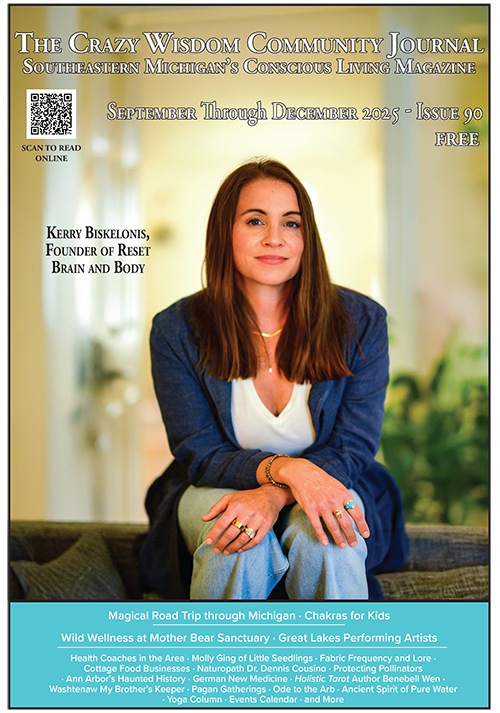David has been practicing meditation for over 25 years and has been a student of Buddhist practice for 20 years. For the past 15 years, he has been teaching ongoing classes and retreats in a variety of settings. You can read his essay on meditation here (published in the January through April 2014 issue).
By David Lawson
Now that I have your attention, let me tell you what a wonderful practice it can be to acknowledge to yourself that you and everybody else in this world are going to die! You may say, “Well, of course, I already know that. Why is it necessary to dwell on such a morose topic?” But as it turns out, we don’t really act as if we know it, do we? For example, if we had already integrated this truth into our lives, we would no longer be placing our spiritual growth in a position of secondary priority in our lives. Nor would we be so concerned about consensus notions of success. In many ways, we would be free of some of the most burdensome patterns of our conditioning. After enduring several decades of being pushed around by a morbid fear of death, I undertook the practice of awareness of death several years ago, and that practice has made all the difference!
In my previous article, I mentioned that meditation brings about a greater vulnerability and availability to life. This is a good thing, because most of the time we are walking through our lives as robots, simply going through the motions. It is our resistance to the acknowledgment of death that helps propel this robotic shuffle toward what is known in the Buddhist traditions as becoming. Becoming is the tendency to create scripted roles in which we are the lead player and that support the primary duality of our experience, namely the sense that there is a solid self “in here,” somehow insulated from everything else “out there.” With becoming, the actor is always trying to “make something” of himself/herself, to become a new and improved self. But unfortunately, a lifetime of scripted acting is most likely to result mainly in a feeling of loneliness and numbness.
““[What is known in the Buddhist traditions as] Becoming is the tendency to create scripted roles in which we are the lead player and that support the primary duality of our experience, namely the sense that there is a solid self “in here,” somehow insulated from everything else “out there.””
Awareness of death practice was highly recommended by the Buddha, who spent most of his life trying to get people to see the possibility that they, like him, could awaken from the dream of the dramas that they found themselves in. In the Path of the Elders, there is a meditation often referred to as the “Five Remembrances.” It is as follows:
1. I am subject to old age. I am not exempt from old age.
2. I am subject to illness. I am not exempt from illness.
3. I am subject to death. I am not exempt from death.
4. I must be parted and separated from everyone and everything dear and agreeable to me.
5. I am owner and heir of my actions.
The most direct way to do this practice is to memorize the phrases, then sit with eyes closed and simply repeat each phrase slowly and silently in your mind. Take your time with each remembrance, letting it sink in and go straight to the heart. As scenarios, thoughts, or emotions occur, try not to take any action to eliminate or change them (Hint: the actor will not like this). Simply note their presence, and then return to the silent internal repetition of the phrases. You may go through all five in a matter of minutes and then repeat, or you may end up dwelling on one or more for an extended period of time. After the practice, you may want to journal about the thoughts or emotions that occurred, especially looking for connections between them, as well as how they point to long-held behavioral patterns (the "scripts" I mentioned above).
““After the practice, you may want to journal about the thoughts or emotions that occurred, especially looking for connections between them, as well as how they point to long-held behavioral patterns (the “scripts” I mentioned above).” ”
In addition to this sitting practice, here is something else you might try. The next time you are confronted with a seemingly intractable problem, simply remind yourself that you are going to die. You may find that as soon as you do this, the pressure will come off the self to perform its assumed role, and you may also notice a lessening of complexity of the perceived situation, along with a simultaneous increase of connection with those whom you know to be in the same situation. It is in this moment that true compassion becomes possible.

































































































































































































When I split from my ex in the late 1980's, I didn't take the toaster or the television with me. Instead, I got custody of the tarantula.